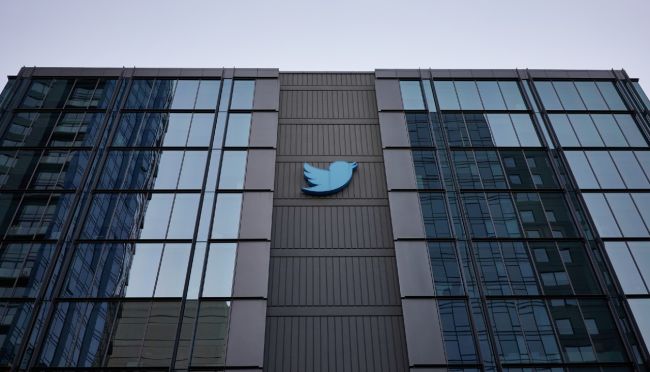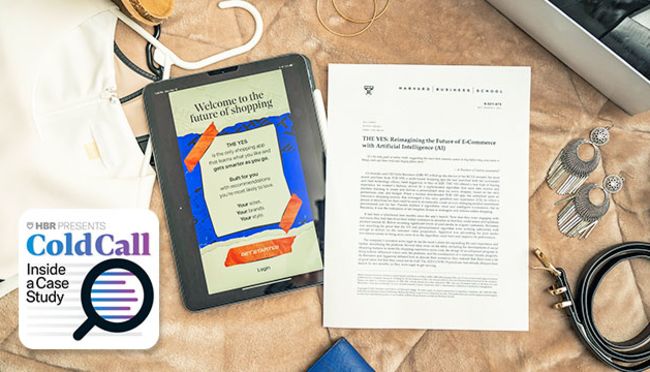
- 26 Sep 2023
- Book
Digital Strategy: A Handbook for Managing a Moving Target
Digital strategy demands significant organizational energy at many companies. By the time teams have adapted to newly implemented technology, another platform has emerged to replace it. A book coedited by Feng Zhu offers a guide for executives trying to manage the chaos.

- 11 Apr 2023
- Research & Ideas
Is Amazon a Retailer, a Tech Firm, or a Media Company? How AI Can Help Investors Decide
More companies are bringing seemingly unrelated businesses together in new ways, challenging traditional stock categories. MarcAntonio Awada and Suraj Srinivasan discuss how applying machine learning to regulatory data could reveal new opportunities for investors.

- 02 Feb 2023
- Research & Ideas
Why We Still Need Twitter: How Social Media Holds Companies Accountable
Remember the viral video of the United passenger being removed from a plane? An analysis of Twitter activity and corporate misconduct by Jonas Heese and Joseph Pacelli reveals the power of social media to uncover questionable situations at companies.

- 29 Nov 2022
- Research & Ideas
Is There a Method to Musk’s Madness on Twitter?
Elon Musk's brash management style has upended the social media platform, but was bold action necessary to address serious problems? Andy Wu discusses the tech entrepreneur's takeover of Twitter.

- 21 Jun 2022
- HBS Case
Free Isn’t Always Better: How Slack Holds Its Own Against Microsoft Teams
What will it take to win the collaboration app wars: massive scale or a loyal following? A case study by David Yoffie digs into the intense competition between Microsoft Teams and Salesforce's Slack.

- 17 May 2022
- Cold Call Podcast
Delivering a Personalized Shopping Experience with AI
THE YES, a shopping app for fashion brands, uses a sophisticated algorithm to create and deliver a personalized store for every shopper, based on her style preferences, size, and budget. After launching the app in 2020, the founders had to decide whether to continue developing the algorithm to deliver on the company’s customer value proposition or to focus their resources on new customer acquisition, with the idea that more users on the app would improve the algorithm's performance. Senior Lecturer Jill Avery and The YES co-founder and CEO Julie Bornstein discuss this make-or-break dilemma in the case, The YES: Reimagining the Future of e-Commerce with Artificial Intelligence (AI). This episode was recorded live at Harvard Business School on March 30, 2022 as part of our Case Method 100 celebration.

- 14 Jan 2021
- Working Paper Summaries
Dog Eat Dog: Measuring Network Effects Using a Digital Platform Merger
With heated debate over antitrust regulation of online platforms, this study finds that when a larger platform acquired its greatest competitor, users were not better off with a single platform compared with two competitors, despite marked efficiency improvements experienced by the acquiring platform.

- 28 Jul 2020
- Research & Ideas
Racism and Digital Design: How Online Platforms Can Thwart Discrimination
Poor design decisions contribute to racial discrimination on many online platforms. Michael Luca and colleagues offer tips for reducing the risk, used by Airbnb and other companies. Open for comment; 0 Comments.

- 08 Feb 2019
- Working Paper Summaries
Platform Systems vs. Step Processes—The Value of Options and the Power of Modularity
Technology shapes organizations through incentives and rewards. This paper compares the value structure of platform systems and step processes, finding that step processes reward technical integration, unified governance, risk aversion, and the use of direct authority. Platform systems by contrast reward modularity, distributed governance, risk taking, and autonomous decision-making.

- 30 Oct 2018
- Working Paper Summaries
Design Rules, Volume 2: How Technology Shapes Organizations: Chapter 14 Introducing Open Platforms and Business Ecosystems
Platform systems have existed in various forms for centuries. Beginning in the 1980s and 1990s, newly competitive technology of open platform systems based on digital technology and modular architectures changed the structure of entire industries. This paper lays the groundwork for a comprehensive theoretical investigation of open platform systems.

- 07 Apr 2017
- Working Paper Summaries
Explaining the Vertical-to-Horizontal Transition in the Computer Industry
This paper shows how the vertical-to-horizontal transition in the computer industry was an organizational response to a change in economic rewards brought by the competing technologies of rationalized step processes and open platform systems. The spread of modular architectures—and the rapid pace of change in semiconductor technology—shifted the balance of rewards away from predictability toward flexibility.

When Glasses Land the Gig: Employers Still Choose Workers Who 'Look the Part'
Is an eyeglass-wearer more likely to be a strong web developer? Employers that use online talent platforms tend to consider profile photos in final hiring decisions, says research by Isamar Troncoso. What's the role of recruiting platforms in preventing bias?